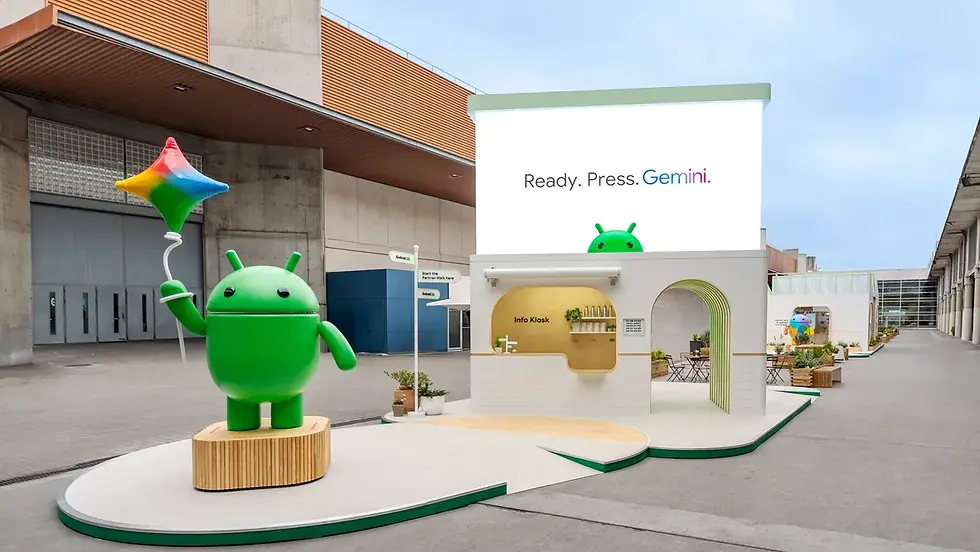Another Crazy Day in AI: Why Prompts Aren’t One-Size-Fits-All
- Wowza Team

- Mar 6, 2025
- 3 min read

Hello, AI Enthusiasts.
Almost Friday, but AI doesn’t sleep!
A new study from Wharton asks: Does adding “please” actually improve AI responses? The answer? Not as much as you’d think.
Meanwhile, Google is giving search an AI boost by integrating Gemini 2.0, making Overviews more advanced and interactive.
And in classrooms, UK schools are using AI in creative ways, from history lessons with virtual Charles Darwin to AI-powered writing assistants.
The weekend is near—AI is still going full speed.
Here's another crazy day in AI:
What works in AI prompts and what doesn’t
English schools challenge AI skepticism with innovation
Google enhances search with AI Overviews and new AI Mode
Some AI tools to try out
TODAY'S FEATURED ITEM: Politeness May Not Help Your AI Prompt

Image Credit: Wowza (created with Ideogram)
Does saying "please" to an AI actually make it perform better?
A new report from Wharton's Generative AI Lab challenges assumptions about prompt engineering. Led by Ethan Mollick and his team, the study examines whether certain prompting techniques—like adding polite language—consistently improve AI performance. The findings? It’s not that simple.
What they found along the way:
There’s no single standard for measuring AI performance—different benchmarks can lead to very different conclusions.
Techniques like politeness or structured formatting can sometimes improve responses but can also make them worse.
AI responses aren’t always consistent—small changes in wording can shift results in unpredictable ways.

The study highlights an important reality: AI doesn’t follow fixed rules when it comes to prompts. Many people assume that small tweaks—like making a request more polite—will always lead to better results. But as this research shows, that’s not always the case. What works in one context may fail in another, and AI’s behavior can be surprisingly inconsistent.
It also raises questions about how we evaluate AI performance. Since results can vary based on how success is measured, businesses and researchers need to be intentional about their benchmarks. A model that looks effective under one test might not hold up under another. Understanding these nuances will be key as AI continues to play a bigger role in decision-making, from education to business strategy.
Check out Mollick's LinkedIn post here.
Read and download the full paper here.
OTHER INTERESTING AI HIGHLIGHTS:
English Schools Challenge AI Skepticism With Innovation
/Richard Adams, Education Editor, The Guardian
Schools across England are using AI in creative ways to make learning more engaging, from chatting with a virtual Charles Darwin about evolution to turning student writing into AI-generated images. Teachers say AI has boosted student participation, particularly among those who are typically more reserved. While educators remain cautious about potential risks, they recognize AI as a tool that will shape students’ future careers. Many schools are also developing policies and student-led discussions to ensure AI is used responsibly and effectively in the classroom.
Read more here.
Google Enhances Search With AI Overviews and New AI Mode
/Robby Stein, VP of Product, Google Search
Google is expanding AI Overviews with Gemini 2.0, making search results faster, more accurate, and capable of handling complex questions. The new AI Mode, currently in limited testing, enhances reasoning and problem-solving capabilities, allowing users to ask detailed questions and receive AI-powered responses with follow-up interactions and deeper insights. Unlike traditional search, AI Mode combines real-time web data with Google's advanced AI, offering a more comprehensive and intuitive way to explore information. Google plans to refine the feature based on user feedback before a wider release.
Read more here.
SOME AI TOOLS TO TRY OUT:
Gong - Analyzes sales conversations to predict revenue and boost team performance.
Gentle Invoice - AI inbox assistant for categorizing and extracting key invoice details.
Gemini Deep Research - Auto-browses the web to generate in-depth reports in minutes.
That’s a wrap on today’s Almost Daily craziness.
Catch us almost every day—almost! 😉
EXCITING NEWS:
The Another Crazy Day in AI newsletter is on LinkedIn!!!

Leveraging AI for Enhanced Content: As part of our commitment to exploring new technologies, we used AI to help curate and refine our newsletters. This enriches our content and keeps us at the forefront of digital innovation, ensuring you stay informed with the latest trends and developments.





Comments